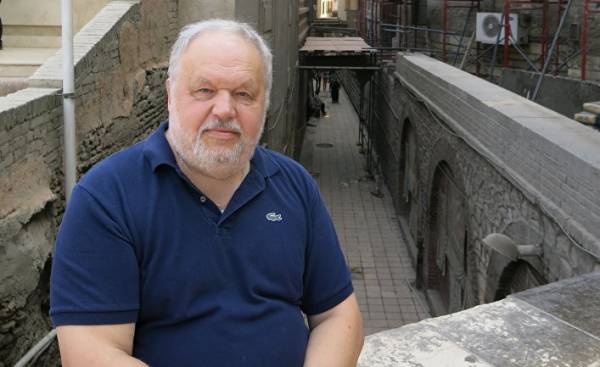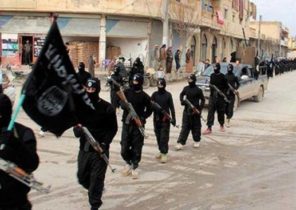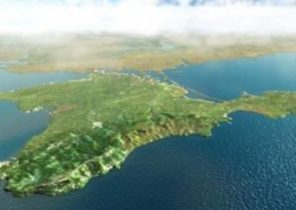
The fate of Baltic Germans in independent Latvia (1918-1940) shows that the problems of national minorities in the Republic has existed from the day of its Foundation, and not associated only with “Russian” or “Soviet” factors. After 1940, in Latvia practically no more Germans, but their fate in the “bourgeois-democratic” Republic demonstration.
The Baltic Germans (Deutsch-Balten) lived in the provinces of Courland, Livonia and Estonia more than seven hundred years — since the 12th century. German colonization of the region were both economic and religious in nature. In particular, the knights of the sword, later incorporated into the Teutonic order, was set the task of conversion to Christianity to the local pagan tribes. The sea came Hanseatic merchants, land — peasants-immigrants. Riga as a Hanseatic city was founded in 1201 by the German Bishop albert Buxhoevden. For centuries, Germans made up the ruling class of Courland and Livonia (present Latvia). It was the nobles, landlords, merchants, clergy, and merchants. Although the absolute number of Germans in Latvia were small (60 thousand people in 1800 and 120 thousand on the eve of the First world war), their impact on all aspects of life was predominant.
A major part of Latvia became part of the Russian Empire in 1721, in accordance with the nishtadt world. The kings kept the Baltic Germans all the privileges and titles of nobility, and left German as the official language in these lands. Russian language was widely introduced only in 1881. Moreover, the Baltic, the Germans occupied in Czarist Russia prominence in the army, politics and Economics. Until the mid 19th century most of the population of Riga were Germans, and only the beginning of the First world war, they pushed the Russians and the Latvians.
During the First world war, Baltic Germans served in the Russian army and honestly performed their duty: the cases of desertion or betrayal on the “national” motives were not observed. After the October revolution in Russia, the Baltic Germans took anti-Bolshevik stance, formed a volunteer corps (Landeswehr, Freikorps), who during the civil war in the Ukraine (1918-21) fought with the red army, and then with the national armies of Latvia and Estonia.
After the civil war and the victory of the bourgeois-nationalist forces was opened on a tragic page in the 700-year history of the Baltic Germans. The young Latvian state deprived the Germans of all received over the centuries of privilege, but also basic civil rights. In 1920 he was eliminated, “the knights”, that is, the noble enterprises of the Baltic Germans in Courland and Livonia, abolished titles of nobility. The Latvians, who were almost history in the service of the German barons, avenged brutally. The worst blow was the so-called “agrarian reform” — held in the Bolshevik spirit of total confiscation of landed estates (mostly German, but also Russian and Polish) and their transfer to landless peasants and Latvian participants of the “liberation war”. (In some historical periods of German landlords owned 80% of land in Latvia). Simultaneously, the new decree of the Latvian Parliament annulled all debts Latvian peasants against the German landowners. Confiscation and fragmentation of large agricultural complexes has resulted in 120 thousand small farms and declining productivity in rural areas. However, thanks to the exemplary organization of the German households, the margin of safety was so high that even in Soviet times, the agricultural sector of Latvia was much more effective than in other regions of the USSR.
Confiscation of the property of “non-Latvians” has affected not only agriculture but also industry and urban housing. It is an expropriation and tax strangulation of German assets, as land and commercial and industrial, including urban real estate, allowed the young Latvian state (which gained independence without a single ruble in the Treasury) to comfortably survive until the Second world war. In addition, as noted by German historians, the confiscation of 90% of the German assets have laid the Foundation of a new Latvian private capital.
After 1920, the Germans were forced to get comfortable with the new role — discriminated ethnic minorities. They lost their special social and cultural status, and political and economic privileges. The part of the Germans (about 20 thousand people) left Latvia after the First world war together with the departing German troops, but most tried to find their place in the young Republic, imbued with a nationalist spirit. Them it partly succeeded, given their contribution to the struggle against Bolshevism. In 20 years the Germans still were the third largest ethnic group in Latvia after the Latvians and Russian — a total of about 70 thousand people. The majority of Germans lived in Riga (13% of the population).
Baltic Germans did not question the idea of an independent Latvia. However, they put in front of the Western powers the question of the protection of the rights of national minorities, which was in Latvia, 20% of the population. This applies not only economic, but also religious and cultural oppression. So, as a result of forced “latsiale” — the mandatory introduction of the Latvian language — the work lost thousands of German – and Russian-speaking officials. In addition, in Riga by the decision of the Parliament of the German-Lutheran community in 1923, was selected by the St. Jacob’s Cathedral and transferred to the Latvian Catholics. Today it is the main Catholic Church of Latvia, although for many centuries it was the Cathedral the Lutheran Cathedral.
The constant oppression of the German national minority in Latvia has led to the fact that after coming to power of the Nazis in Germany increasingly began to discuss the problem of repatriation of the Baltic Germans. Particularly active Hitler and Stalin used the “German question” in the Baltic States in the context of Eastern Europe.
The repatriation of the Baltic Germans was held in the beginning of the Second world war. According to the Molotov-Ribbentrop Pact, the Baltic States passed into the Soviet sphere of influence, and Germany didn’t want to leave ethnic Germans hostage to the Bolsheviks.
The agreement between the Third Reich and Latvia, dated 30 October 1939 provided for the repatriation of the Baltic Germans from Latvia. Left the vast majority (about 50 thousand people) as Hitler threatened to deprive the rest of German citizenship and of protection. The Baltic Germans were resettled in the parts of Poland conquered by the Wehrmacht as the result of the Polish campaign. The last 10 thousand Germans were repatriated from Latvia in 1940-1941 in accordance with the agreement between Hitler and Stalin. Their property was confiscated or sold at bargain prices. After that, the German community in Latvia almost ceased to exist.
However, during the Nazi occupation of 1941-1944 (in Courland, until may 1945) Latvians actively supported Germany, participated in the destruction of the Jewish population and joined the ranks of the Waffen-SS. But this special topic.







